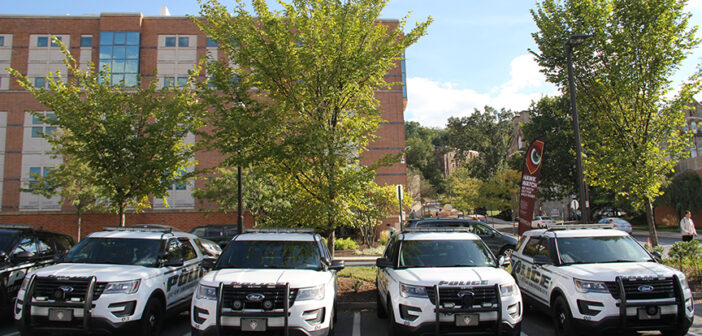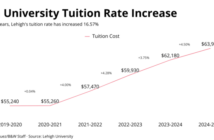Political science professor Holona Ochs hosted a lecture discussing accountability with policing. Her presentation largely focused on the “punitive nature” of the criminal legal system.
The lecture was hosted by Lehigh’s Community Conversations About Race on Sept. 14. It was open to faculty, staff, students and the greater Lehigh Valley community.
Ochs said these conversations about future possibilities in policing will lead to more peaceful relations between citizens and police officers.
Lehigh University Police Chief Jason Schiffer attended Ochs’ lecture and said he was familiar with the information presented. He said he and Ochs have worked together many times.
“We as a police department work really closely with all of the other departments on campus to try to provide the best service that we can,” Schiffer said. “I view our department as an integral part of the role of providing a safe environment for everybody.”
Last April, a review of LUPD and its practices was conducted by the LUPD Review Committee. Ochs was one of the six members on the committee.
One of the findings stated in the committee’s report was that the Lehigh community wanted more restorative justice practices from the LUPD. This kind of justice involves approaching crime with harm management and positive relationships. This was also a topic Ochs discussed in her lecture.
In crisis intervention training, Ochs said police might be trained in how to meet a problem, talk it down and de-escalate the situation. But she said this training is not focusing on meeting human needs.
Ochs said she found the experience of working on the committee to be incredibly rewarding.
“The policies (from LUPD) were pretty good to begin with, but the recommendations that we made, based on literature, went from the use of force policies all the way to the grooming policies,” Ochs said.
Schiffer said looking into the types of training in areas like implicit bias has been a major emphasis within the department.
“What I wanted to do is make sure that we weren’t having a training session that essentially was just checking a box saying that we spent an hour on implicit bias training,” Schiffer said.
He said the department has had a major shift because of scientific research backed by Lorie Fridell and her book, “Producing Bias-Free Policing.” Schiffer said this is a book he always carries and has read many times.
This change in the department opened dialogue with LUPD officers that Schiffer said did not seem to previously exist.
Ochs said Schiffer agreed to make changes within his power based on the recommendations and was transparent throughout the review process.
Kareem Hargrove, ‘25, said despite LUPD’s progress, the average student is not aware of LUPD’s efforts and why they are making them now.
“I keep hearing that the LUPD is doing things,” Hargrove said. “What those things are, I don’t know.”
Hargrove also said Lehigh does a good job of advertising support for students’ mental health, but he is unsure if the university actually follows through.
“I think the issue is transferring students saying ‘I need help’ and actually getting quality care in a timely manner,” Hargrove said. “I know mental health and policing go hand in hand, and if training is done correctly, it can alleviate those issues.”
Schiffer said LUPD is knowledgeable of the mental health status of Lehigh students through a program he takes part in known as Lehigh’s Care Team.
The Care Team is a group consisted of various departments throughout the university that meet at least weekly regarding any students of concern, Schiffer said.
“When a crisis begins to occur with a student, it’s very common that there’s already knowledge available for their situation,” Schiffer said.
Ochs applauded LUPD’s recent efforts in a situation dealing with a student who had a mental health crisis. She said it was handled “cautiously, conscientiously, deliberately and compassionately.”
Hargrove said LUPD should consider spreading the word about what they are doing to different groups of people within the community, students included.
“It’s more than just saying what you’re doing, why you’re doing it, but it’s also involving the people you are trying to help,” Hargrove said. “I think there needs to be a greater conversation between individuals.”






Comment policy
Comments posted to The Brown and White website are reviewed by a moderator before being approved. Incendiary speech or harassing language, including comments targeted at individuals, may be deemed unacceptable and not published. Spam and other soliciting will also be declined.
The Brown and White also reserves the right to not publish entirely anonymous comments.